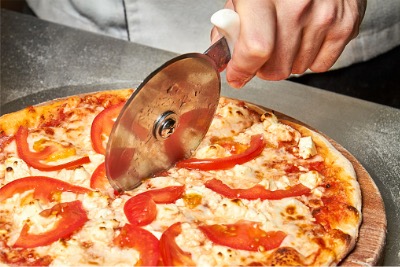
Is Ordering Pizza Halal?
Recently the following question was posed on Facebook, “If my company orders pizza from a non-halal pizza place, and I opt for vegetarian, is it Halal?” This may seem like a straightforward question that warrants a straightforward answer; however, the answer is far from simple.
Cross-contamination
Most of the responses to the question raised concerns about cross-contamination. What is cross-contamination? In the broad sense, the literal meaning is "inadvertent transfer of bacteria or other contaminants from one surface, substance, etc., to another especially because of unsanitary handling procedures.” For Halal consumers, cross contamination is when Halal food has direct or indirect contact with non-Halal food.
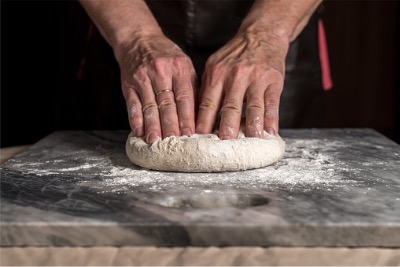
Many respondents said that cross-contamination in a pizza kitchen was their biggest concern. They pointed out that pizza makers may touch pork, bacon, ham, and sausage, and then they start working on the non-meat pizza without washing their hands or changing their gloves.
There were concerns about contaminants in the pizza pans, utensils, cutting boards, and counters. And some respondents said that during preparation, it was likely that meat products would inadvertently fall into containers of non-meat items like vegetables and dairy. Storage and transportation concerns were also raised.
The conversation around this question had another twist. Think about the crust and the huge variety of toppings you can put on a pizza. This list has over 30 varieties of sauces, and the list is far from exhaustive.
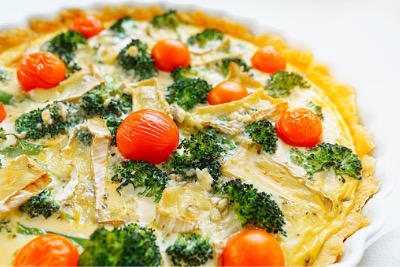
They include pesto, bechamel, salsa, BBQ, hummus, pumpkin, marinara, tapenade, carrot-harissa, ranch, garlic and oil, pepper jelly, caramelized onion, romesco, chimichurri, ricotta, soy-miso, balsamic glaze, Thai chili, Bolognese, curry sauce, alfredo, sun dried tomato, garlic aioli, wasabi, fig jam, tandoori, Thai peanut sauce, Nutella, zaatar and many more. Some sauces have ingredients like alcohol and other Haram (or forbidden) additives.
The Crust
Many people brought up non-halal ingredients that may be in the crust of the pizza.
Like any bread or bakery product, some additives, flavorings, or colorings may not be Halal. Pizza crust could contain lard, which is pig fat, as well as animal-based mono and diglycerides, enzymes, sodium stearoyl-lactylate, L-cysteine and more.
The Cheese
Pepsin, lipase and rennet are enzymes that are used to produce cheese. The enzymes typically are sourced from animals, but consumers can find vegetable or microbial sources. Again, with cheese the choices are endless. Here is a sample list of cheeses used in pizza:
- Mozzarella (low moisture)
- Buffalo Mozzarella
- Gorgonzola
- Pecorino
- Cheddar
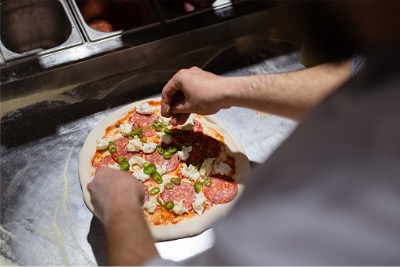
- Gouda
- Tellagio
- Feta
- Parmesan
- Brie
- Provolone
The Toppings
Typically, people add meat, fish, vegetables, fruit, nuts, and more sauce to the pizza. There are too many toppings to mention. Think about your favorite sandwich. Wouldn’t it make a great pizza? You can literally put anything on a pizza that you can put in a sandwich. With all these ingredients, the bread, the sauce, the cheese, the endless toppings, how can Halal consumers be certain that all the ingredients are in fact Halal?
The answer to this question is not simple. For a pizza restaurant to be certified as Halal, it means that all their products, ingredients and processes are Halal. For a pizza place, this can be a difficult endeavor.
Halal Compliance Choices
Halal consumers have varying choices and levels of Halal compliance.
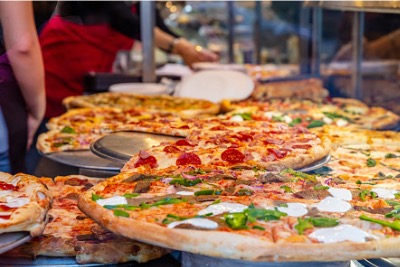
- Some will choose to go to traditional pizza places, order a cheese or vegetarian pizza and hope for the best.
- Some will decide to go to a Halal pizza place and are comfortable with an establishment that doesn’t serve pork, alcohol and avoids non-halal ingredients that they are aware of.
- Some will only patronize certified restaurants where all ingredients and processes are Halal compliant.
- And some will simply not order pizza or they’ll make it themselves at home.
Most Halal consumers who responded fell somewhere in the middle of the continuum. Many said that they will go to a Halal restaurant, ask if the pizza is Halal, and if the owner said it is, that was good enough for them.
Islamic Services of American (ISA) is a leading USA based Halal certification and auditing organization serving companies, the community, and the Halal industry for over 45 years. Contact ISA at isa@isahalal.com or visit the ISA website for more information at www.isahalal.com

picture credit: istock.com